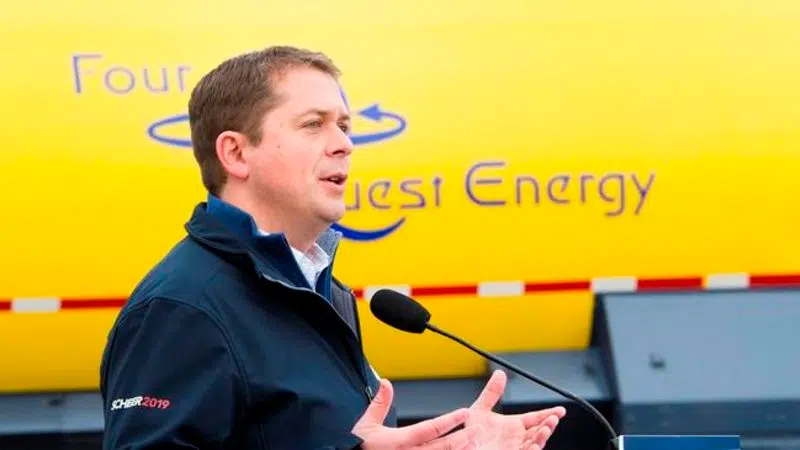
Scheer promotes Conservative plan to create national energy corridor
EDMONTON — Conservative Leader Andrew Scheer touted his plan for a national energy corridor Saturday, pitching it not only as a way to benefit the struggling oil-and-gas sector, but also the environment.
“This corridor will allow the federal government to take care of and address environmental concerns up front,” said Scheer, who was surrounded by workers at an energy-industry services company.
Scheer made the announcement in Edmonton, a day after hundreds of thousands of young people flooded the streets in cities across Canada to demand action from leaders on fighting climate change. The protesters also called for fossil fuels to stay in the ground.
He was the only major-party leader not to take part in any of the marches, but he said his energy-corridor plan takes the environment into account.
